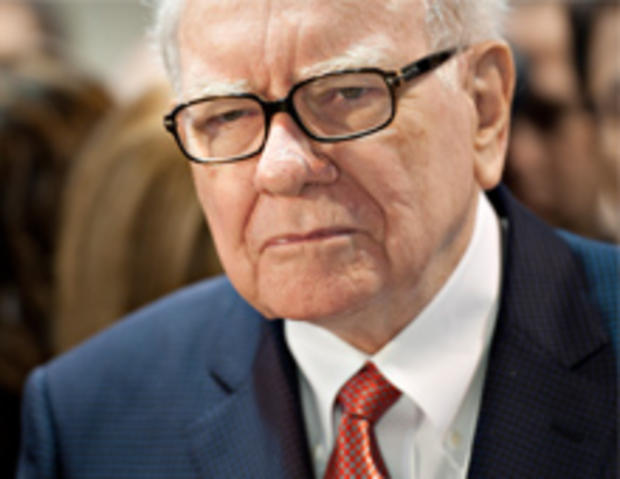Warren Buffett & Taxes: Democrats and GOP Both Claim Mantle
- Warren Buffett has become a Rorschach test for politicians, who are using the investor's words to justify very different beliefs.
Republicans are seizing on a Friday morning interview the Oracle of Omaha gave to CNBC, in which he reiterated the tax ideas that have been repackaged as "the Buffett rule." Just as President Obama has tried to make his tax proposals more appealing by using Buffett's name, the GOP is now claiming that Buffett supports its position. In an email blast, the Republican National Committee announced that Buffett had disagreed with Obama's plan to raise taxes on America's top earners.
Buffett has never wavered - it's the interpretations that keep changing. The president took liberties in claiming the Buffett mantle, and yet the basic premise - that wealthy taxpayers should pay higher rates than the middle class - continues to inform both Buffett's point and the President's proposals. The big difference is that Obama would include a much larger group of citizens in his definition of wealthy and undertaxed.
The tax argument is sure to continue through the election, but Buffett's statements Friday may be used by both sides. Buffett's point is fairly simple - because of tax shelters and the fact that investment income is taxed at a much lower rate than salary, very wealthy people like him can end up paying a lower rate than, say, a well-compensated secretary who might be paying a top rate of 28 percent.
Buffett says he paid a tax rate of about 17.4 percent, well below what some upper middle class taxpayers shell out. That's because the vast majority of his income is from capital gains, which is taxed at 15 percent. But he noted that an athlete or a TV star, whose big bucks come from ordinary income, would pay much higher taxes, and he doesn't suggest boosting their rates.
"Some guy making $50 million playing baseball, his taxes won't change," Buffett said. "If you make $50 million a year appearing on television, [your] income won't change, but if they make a lot of money and they pay a very low tax rate, like me, it would be changed by a minimum tax that would only bring them up to what the other people pay."
So in effect, Buffett is proposing an alternative minimum tax for millionaires. While President Obama has cited the Buffett example of the highly taxed secretary to justify his tax proposals, his plan would hike taxes on a much broader swath of the population - any couple making over $250,000.
As a result, Buffett's comments have given talking points to both sides.
In news that can cheer both Democrats and Republicans, Buffett said he would continue to invest in American companies. He said such investments were a bet on the economic strength of the United States. "It's very, very unlikely we'll go back into a recession," Buffett said.
More on MoneyWatch & CBS News:

